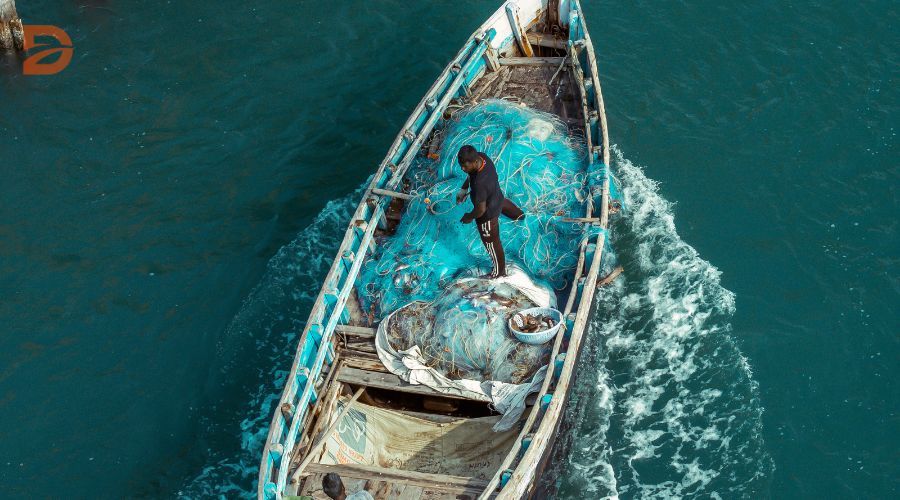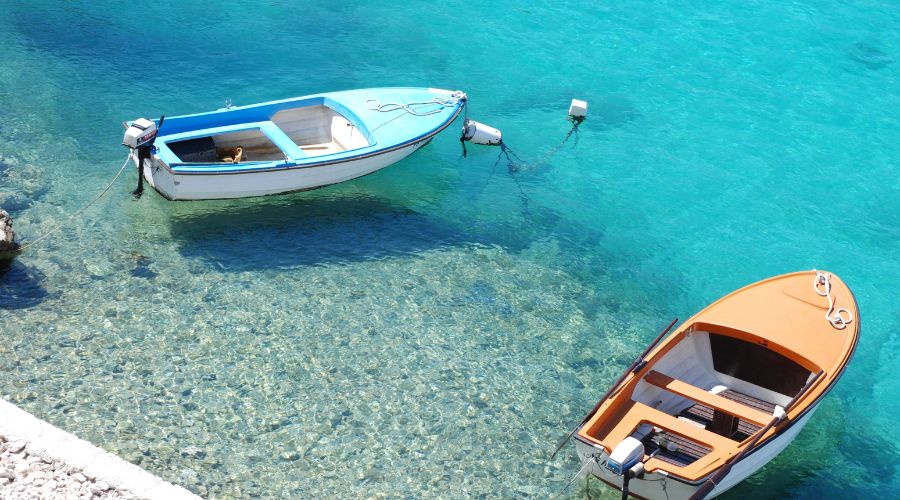In a world increasingly focused on environmental preservation, the question arises: can boating be eco-friendly? The answer is a resounding yes. Sustainable boating practices not only protect our waterways but also contribute to a healthier planet. From reducing fuel consumption to preventing oil spills, there are numerous ways boaters can embrace a greener lifestyle on the water.
This article will delve into the principles of sustainable boating, exploring simple yet impactful steps you can take to minimize your environmental footprint and enjoy your time on the water responsibly. Whether you’re a seasoned sailor or a budding boater, the tips and insights provided here will empower you to be a steward of our precious aquatic ecosystems.
Key Takeaways
- Sustainable boating practices help protect waterways and the environment.
- Reducing fuel consumption, preventing oil and fuel spills, and using eco-friendly cleaning products are essential for green boating.
- Following “Clean, Drain, Dry” protocols can help prevent the spread of invasive species.
- Protecting marine life and habitats is a crucial aspect of sustainable boating.
- The marine industry is actively embracing sustainability through various initiatives and innovations.
Understanding Sustainable Boating
Sustainable boating, often referred to as clean or green boating, is a recreational activity that aims to preserve our waterways for future generations. According to the EPA, sustainability refers to creating and maintaining conditions where humans and nature can co-exist to support present and future generations. In the context of boating, this means adopting practices that minimize the impact on the environment while still allowing for the enjoyment of the sport.
What is ‘Green’ or ‘Sustainable Boating’?
Sustainable boating encompasses a range of eco-friendly practices that boaters can implement to reduce their environmental footprint. These include:
- Proper waste management and disposal to prevent marine pollution
- Using environmentally friendly cleaning products and maintenance supplies
- Maintaining boats to optimize fuel efficiency and reduce emissions
- Preventing the introduction of invasive species through thorough cleaning and maintenance
- Choosing eco-friendly antifouling paints and other boat products
By adopting these sustainable boating practices, boaters can enjoy their recreational activities while minimizing their impact on the delicate marine ecosystems. This not only benefits the environment but also ensures that future generations can continue to experience the joys of sustainable boating.
| Sustainable Boating Practices | Potential Environmental Benefits |
|---|---|
| Proper waste management and disposal | Prevent marine pollution and protect aquatic habitats |
| Use of environmentally friendly cleaning and maintenance products | Reduce the introduction of harmful chemicals into waterways |
| Maintaining boats for optimal fuel efficiency | Decrease emissions and fuel consumption, contributing to a smaller carbon footprint |
| Preventing the spread of invasive species | Protect native ecosystems and biodiversity |
| Selection of eco-friendly antifouling paints | Minimize the release of harmful substances into the water |
By embracing these sustainable boating practices, boaters can enjoy their recreational activities while playing a crucial role in preserving the health and beauty of our waterways for years to come.
Simple Practices for Sustainable Boating
As boating enthusiasts, we have a responsibility to minimize our environmental impact and embrace sustainable practices. By taking a few simple steps, we can help preserve the natural beauty and ecological balance of our waterways.
Prevent Oil and Fuel Spills
Preventing oil and fuel spills is crucial for protecting the aquatic environment. Regular engine maintenance and being mindful of fuel consumption can help minimize the risk of spills. Consider using renewable energy sources, such as solar, wind, or water, to power your boat and reduce your carbon footprint.
Use Eco-Friendly Boat Cleaning Products
When it comes to cleaning your boat, opt for non-toxic and biodegradable products. Avoid using harsh chemicals that can harm aquatic life and contaminate the water. Biofuel, for instance, is a renewable and eco-friendly alternative that burns cleanly, reducing the environmental impact.
Follow ‘Clean, Drain, Dry’ Protocols
To prevent the spread of aquatic invasive species, it’s essential to follow the ‘Clean, Drain, Dry’ protocol. Before moving your boat to a new body of water, thoroughly clean the hull, drain any standing water, and allow the boat to completely dry. This simple practice helps protect delicate ecosystems and native species.
By implementing these sustainable boating practices, we can all do our part to preserve the health and beauty of our waterways. Every small step we take can make a significant difference in protecting the environment and ensuring a greener future for generations to come.
Protecting Marine Life and Habitats
As responsible boaters, we have a vital role to play in protecting marine life and aquatic habitats. Our actions on the water can significantly impact delicate ecosystems, from seagrass beds to coral reefs. By adopting sustainable practices, we can minimize our footprint and contribute to the conservation of these precious natural resources.
One crucial step is to avoid disturbing sensitive areas. This includes navigating around seagrass meadows and following designated channels to prevent damage to fragile habitats. Additionally, being mindful of wildlife and not harassing marine creatures is essential for their well-being.
Proper anchoring techniques and waste management are also critical for protecting the marine environment. Choosing eco-friendly cleaning products and preventing oil and fuel spills can go a long way in preserving the health of our waterways.
“The ocean provides us with so much, and it’s our responsibility to protect it. By being mindful of our actions on the water, we can make a real difference in safeguarding marine life and habitats for generations to come.”
Organizations like SeaKeepers offer exciting opportunities for boaters to participate in marine research projects as citizen scientists, contributing to our understanding and conservation of these vital ecosystems.
As we navigate the waters, let us embrace our role as responsible stewards of the marine environment. By prioritizing seagrass conservation and protecting aquatic habitats, we can ensure that the beauty and diversity of our oceans, lakes, and rivers are preserved for years to come.
| Statistic | Value |
|---|---|
| Plastics comprise about 80% of all marine debris | According to the International Union for Conservation of Nature |
| Organizations like SeaKeepers offer opportunities for boaters to participate in marine research projects as citizen scientists | |
| Marine Protected Areas (MPAs) serve as vital sanctuaries for marine life, preserving ecosystems and biodiversity | |
| Proper boat maintenance is essential to prevent marine pollution | Regular checks on fuel lines, seals, and joints are crucial |
| Wildlife can mistake debris in the water for food or get entangled in it with lethal consequences | Community shoreline cleanups can help mitigate these risks |
Sustainable boating
In addition to the simple practices outlined in this article, boaters can further embrace sustainable boating by exploring newer technologies and innovations. This includes transitioning to electric or hybrid boat motors, using solar power to charge onboard batteries, and choosing biofuel-compatible engines.
Regular maintenance, proper waste management, and conscientious boating habits can all contribute to a more eco-friendly and sustainable boating experience. Boaters play a crucial role in preserving the health of our waterways and marine ecosystems.
Embracing Clean Technologies
As the demand for green boating grows, the market is offering an increasing array of renewable energy solutions for boats. Electric boats and hybrid boats are becoming more affordable and accessible, allowing boaters to reduce their carbon footprint while enjoying the same performance and features.
| Technology | Benefits |
|---|---|
| Electric Boats | Zero direct emissions, quiet operation, lower maintenance costs |
| Hybrid Boats | Combine electric and traditional propulsion for improved efficiency |
| Solar Power | Renewable energy source to charge onboard batteries |
| Biofuel Engines | Reduce greenhouse gas emissions compared to traditional fuels |
By embracing these sustainable boating practices, boaters can minimize their environmental impact and contribute to a cleaner, healthier aquatic ecosystem.
Conclusion
As we embark on the journey towards more sustainable boating, it is clear that the boating industry is undergoing a remarkable transformation. From the rise of electric and hybrid vessels to the adoption of innovative technologies like wing sails and solar-powered yachts, the commitment to eco-friendly practices is becoming increasingly evident.
By taking simple steps to prevent oil and fuel spills, using biodegradable cleaning products, and protecting our precious marine habitats, each of us can play a vital role in ensuring the health and longevity of our waterways. This collective effort not only benefits the environment but also enhances the overall boating experience for generations to come.
As we look to the future, the continued development of eco-friendly boating solutions and the widespread adoption of sustainable practices will be crucial in shaping a greener, more resilient boating industry. By staying informed, participating in educational initiatives, and supporting eco-conscious businesses, we can all contribute to the realization of a more green boating landscape.
FAQ
What is ‘green’ or ‘sustainable boating’?
Sustainable boating, often referred to as clean or green boating, supports boating as a recreational activity and helps maintain our waterways for future generations. It involves creating and maintaining conditions where humans and nature can co-exist in a sustainable manner.
How can boaters prevent oil and fuel spills?
Boaters can prevent oil and fuel spills by performing regular engine maintenance, carefully fueling their boats, and using absorbent pads or bilge socks to contain any minor spills.
What eco-friendly boat cleaning products should boaters use?
Boaters should use non-toxic and biodegradable boat cleaning products that are safe for the marine environment. Avoid harsh chemicals and opt for eco-friendly alternatives.
How can boaters follow the ‘clean, drain, dry’ protocol to prevent the spread of aquatic invasive species?
To prevent the spread of aquatic invasive species, boaters should thoroughly clean, drain, and dry their boats, trailers, and equipment before moving to a new body of water.
How can boaters protect marine life and aquatic habitats?
Boaters can protect marine life and habitats by avoiding sensitive areas like seagrass beds, following navigational charts and signage, and being cautious not to disturb or harass wildlife. Proper anchoring techniques and waste management practices are also crucial.
What sustainable boating technologies and innovations are available?
Boaters can embrace sustainable boating by transitioning to electric or hybrid boat motors, using solar power to charge onboard batteries, and choosing biofuel-compatible engines. Regular maintenance and conscientious boating habits can also contribute to a more eco-friendly boating experience.











